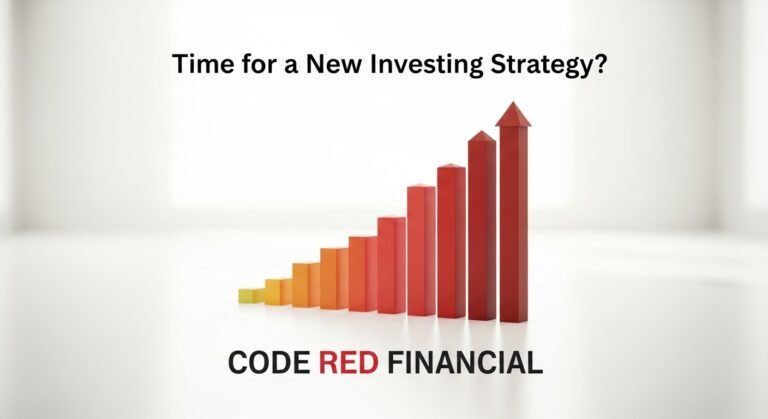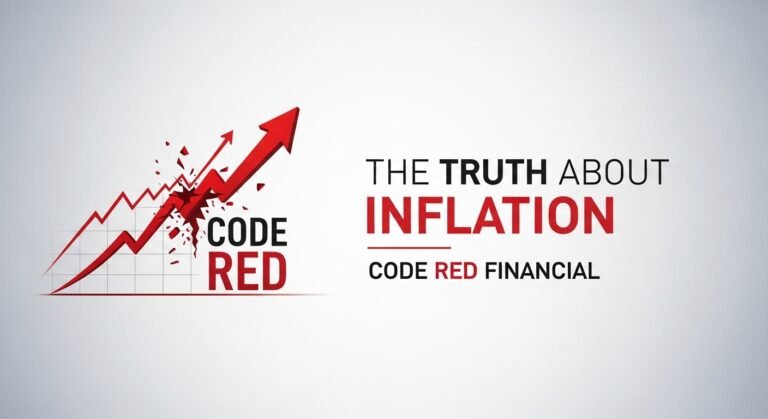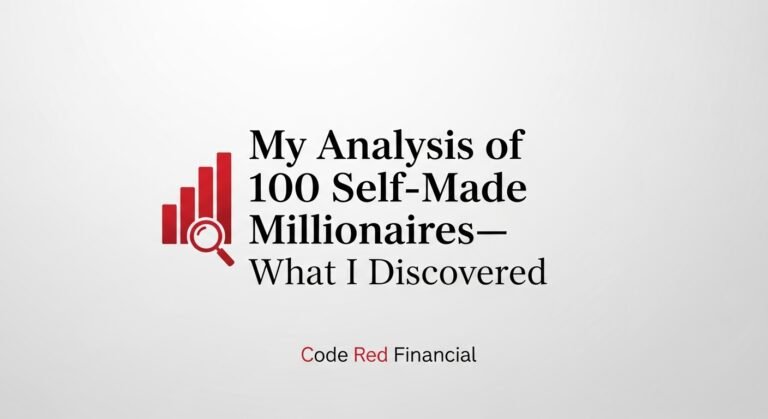
Blueprint for Your Financial Journey
Over my years working in and writing about personal finance, I’ve seen countless individuals struggle with the same old financial advice that simply doesn’t cut it in today’s complex world. I’ve learned that to truly break free from financial constraints and build lasting wealth, a more dynamic and innovative approach is essential. It’s not just about budgeting harder; it’s about thinking smarter and leveraging modern strategies.
That’s why I want to share with you 8 innovative steps that I personally champion for revolutionizing your financial life and setting you firmly on the path to sustainable wealth creation. I’ve moved past the dusty, outdated methods, and I believe these strategies can help you embrace the future of personal finance too.
1. My Focus: Value-Based Budgeting – Aligning Spending with Deep-Seated Goals.
I’ve found that traditional budgeting often feels restrictive and unsustainable for many. That’s why I advocate for value-based budgeting. This approach fundamentally shifts the perspective. Instead of merely tracking every penny spent on obligations, I encourage clients (and practice myself) to consciously align spending with what truly matters most.
- Why I find it innovative: It’s less about deprivation and more about intentionality. If your deep-seated goals include traveling the world, investing in further education, or supporting causes you believe in, your budget, in my view, should become a powerful tool to achieve these aspirations, not just a list of bills.
- My Actionable Tip: I always start by identifying my top 3-5 core values. Then, I meticulously review current spending to see how much of it genuinely supports these values. The key is to then redirect funds from low-value spending to these high-impact areas. This shift, in my experience, not only makes budgeting more meaningful but also far more sustainable.
2. How I Leverage AI-Powered Financial Tools: My Personal Finance Co-Pilot.
The advancement of artificial intelligence is something I watch closely, and its application in personal finance is genuinely exciting. AI is no longer a futuristic concept; it’s a powerful ally I believe everyone should consider for wealth management.
- Why I find it innovative: AI-powered apps and platforms can analyze spending patterns, identify savings opportunities, help optimize investments, and even provide personalized financial advice – often more accessibly than traditional routes. I see them as indispensable co-pilots.
- My Actionable Tip: I recommend exploring apps that offer automated savings, investment robo-advisors, or AI-driven bill negotiation services. Letting technology handle some of the analytical heavy lifting can provide insights you might otherwise miss.
3. My Strategy: Gamifying Savings & Investing to Make Wealth Building Engaging.
Let’s be honest, managing money isn’t always thrilling. That’s why I’m a proponent of gamification. Introducing elements of game-playing – like points, badges, and friendly competition – to financial goals can be surprisingly effective.
- Why I find it innovative: This approach, I’ve observed, taps into our natural desire for achievement and competition. It can transform the often-tedious tasks of saving and investing into something more engaging and motivating.
- My Actionable Tip: I suggest looking for financial apps that incorporate gamified features for saving money or learning about investing. Sometimes, I even set up small, fun challenges with peers to reach savings targets – it adds an enjoyable competitive edge.
4. My Exploration: Fractional Investing in Alternative Assets for Democratized Wealth.
I’ve often been asked if investing in assets like art, real estate, or private equity is out of reach for the average person. My answer is increasingly “no,” thanks to fractional investing.
- Why I find it innovative: Platforms now allow individuals to buy small shares (fractions) of traditionally inaccessible assets. From my perspective, this is a fantastic way to diversify a portfolio beyond just stocks and bonds, opening up new avenues for potential growth.
- My Actionable Tip: I advise researching reputable platforms that offer fractional shares in assets like real estate investment trusts (REITs), fine art, collectibles, or even venture capital. It’s crucial, of course, to start small and thoroughly understand the risks involved with each asset class.
5. My Priority: Cultivating a High “Financial Well-being” Score – Beyond Just Net Worth.
In my view, financial health extends far beyond the numbers in a bank account. I place great emphasis on financial well-being, which encompasses one’s relationship with money, financial stress levels, and confidence in the financial future.
- Why I find it innovative: This holistic approach recognizes that true wealth includes peace of mind. I’m encouraged by the new tools and assessments that help individuals gauge and improve this broader measure of financial health.
- My Actionable Tip: I often suggest clients take a financial well-being quiz. The next step is to identify areas causing stress (e.g., debt, lack of an emergency fund) and then collaboratively make a plan to address them. My focus is on building good financial habits that reduce anxiety and increase confidence.

6. My Approach: Skill Stacking for Income Diversification to Future-Proof Earnings.
I believe that relying on a single income stream in today’s economy carries inherent risks. That’s why I champion skill stacking, which involves acquiring complementary skills to create multiple income opportunities.
- Why I find it innovative: Instead of just having a “side hustle,” this is about strategically building a portfolio of skills. These skills can then be combined in various ways to generate income, whether through freelancing, consulting, or starting a micro-business.
- My Actionable Tip: I guide individuals to first identify their core skills. Then, we explore related skills they could learn that would make their core offering more valuable or allow them to tap into new markets. Investing in learning these complementary abilities (think “graphic designer + copywriting” or “data analyst + public speaking”) is key in my book.
7. My Ritual: Conducting Regular “Money Dates” for Intentional Financial Check-ins.
Just like any important relationship, I find that one’s relationship with personal finances needs regular, dedicated attention. I’m a big believer in scheduling “money dates.”
- Why I find it innovative: This practice moves financial management from a reactive, often stressful chore to a proactive, intentional habit. This consistent engagement, from what I’ve seen, helps individuals stay on track and adapt to changing circumstances far more effectively.
- My Actionable Tip: I recommend scheduling a recurring 30-60 minute slot in your calendar (weekly or bi-weekly). I use this time to review my budget, track investment performance, read up on financial news, or plan my next financial move. My advice? Make it enjoyable – create a relaxed atmosphere.
8. My Commitment: Investing in Financial Education Continuously – Knowledge is Compounding Power.
The financial landscape is perpetually evolving. New investment vehicles, tax laws, and economic trends emerge with regularity. For this reason, I am deeply committed to lifelong financial learning, and I urge others to do the same.
- Why I find it innovative (or rather, essential): It’s about proactively seeking knowledge rather than waiting until a problem arises. This continuous learning empowers informed decision-making and the ability to adapt strategies for long-term success.
- My Actionable Tip: I dedicate time each week to read financial news, reputable blogs, listen to insightful podcasts, or take online courses. I follow trusted financial experts and always encourage an inquisitive mindset. The more one knows, the more confident and capable one becomes in managing their financial destiny.
Taking Control and Building Your Future: My Perspective
From my professional standpoint, managing your financial life and growing your wealth isn’t about luck; it’s about a well-thought-out strategy, disciplined execution, and a genuine willingness to innovate. By implementing these eight innovative steps, I firmly believe you can move beyond outdated financial norms and build a more secure, prosperous, and fulfilling future.
Which of these steps resonates most with your current financial journey? I’d be interested to hear your thoughts in the comments below!
Disclaimer: This article is for informational purposes only and should not be considered financial or investment advice. Investing in any of the mentioned passive income streams involves risk, and you could lose money. Before making any investment decisions, it is essential to conduct your own thorough research and consider consulting with a qualified financial advisor who can assess your individual financial situation, risk tolerance, and goals. The potential returns discussed are illustrative and not guaranteed. Market conditions, regulations, and other factors can significantly impact the performance of any investment or business venture.






